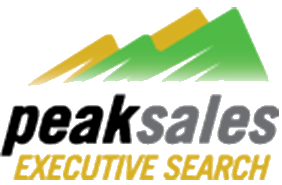SOLVING FOR SUCCESS:
How to recruit candidates who can sell services
Your company sells a service to other businesses and you need a strong salesperson. So you turn to the usual source: Job boards. No doubt, you’ll get plenty of candidates. Unfortunately, most of them will be people whose experience is in selling products. In our experience, many highly successful product sellers struggle when selling services.
The nature of product salespeople is that they’re hunters: They may be very good at tracking down potential clients and closing deals. However, product sales can be all about comparing features, benefits and price against a competitor with a similar product.
If you’re selling a service — especially a complex technology service — you’re not selling something the prospect can immediately see and touch. You’re selling a solution to the client’s problem.
TRANSACTIONAL VS CONSULTATIVE SELLING
All salespeople want to get a return on their investment of time, and as their employer, so do you. Product salespeople can be transactional, chasing deals that can give them a quick win. Selling services on the other hand often requires the patience to build relationships, and to see the bigger picture even if it’s 12 to 18 months away.
Service salespeople must be willing to invest time in that longer sales cycle. To sell a complex solution to a client’s problem, the salesperson first has to understand the problem in detail. Some salespeople are very good passive listeners, taking in all of the information the prospect offers. But to extract everything needed to properly scope a solution, you need someone who’s skilled at directed listening — they need the ability to direct their conversations with the prospect to get all of the information they need.
In addition to directed listening, it’s crucial that the salesperson search out everyone on the prospect’s side who will have input on the decision to buy. Especially for software services, people within the prospect’s IT department — who may be two or three levels below the director who initiated the conversation — will get involved. The salesperson must engage with those stakeholders directly to understand their needs and their potential objections in order to close the deal.
DON’T BE BLINDED BY LOGOS
Candidates who come to you with large, well-known corporations on their resumes deserve a look, but don’t be blinded by the notoriety of their former employers. Especially for a start-up or a company pivoting into a new market, someone from a big-company background may not be self-starting and self-managing. They may have been in a series of positions where they were fed qualified leads and in turn passed them on to a sales engineer to work out the details. If you’re expecting them to find their own prospects and work the deal all the way through to implementation, they may not have the experience — or tenacity — you need.
Everyone you interview will tell you they obliterated their quota every year. And those big company people will tell you they can do it all, from soup to nuts. We want to know about the sales process at those big companies, We ask questions of the candidate and can network with that company’s former salespeople and their competitors to find out what their sales process really is. Sometimes we find that the candidate may not have done their own prospecting for years.
CULTURE COUNTS
If you post on a job board, it’s a given that you’ll get resumes from people who match your requirements. Here’s where experienced recruiters prove their value.
Beyond the requirements, it’s critical to find someone who will fit in to your organization and succeed. We spend a lot of time up front understanding our client’s culture and what kinds of people have been successful in their environment.
Especially for small-to-mid-sized European companies looking to break into the North American market we’ve found that cultural fit is essential to success. Companies headquartered in Norway or Denmark for example find the business culture in the U.S. is very different, and that can pose challenges for both the company and the new hire. These companies need someone who’s comfortable working with thin resources and with colleagues who have a very different view of business. When you add in the fact that headquarters is six to nine time zones away, we find that excellent communication skills and a commitment to use them are key.
When we screen candidates, we take culture into account and do an in-depth assessment of their character, their personality, their work style and how they like to be managed to make sure they’re a fit for our client’s needs and their organization.
SUCCESS CHECKLIST
To hire someone who can successfully sell services we start by verifying their skills. We delve into likes and dislikes, into common sales situations and their reactions, into past victories and defeats. We get a firm fix on their personality traits. And we spend the time up front to know our client’s culture. When we present a candidate, we’re confident they can be successful in that company. Remember, even mediocre salespeople still have the skill to sell themselves. Separating the pretenders from the performers takes skill and experience — and that’s where we stake our reputation, hire after hire.
Specialties include: Sales Leadership and Management, Sales Strategy, Driving Results, Solving Business Problems, Stakeholder Presentation Specialist, Growth Strategy Development, Relationship Developer, Business Development, Contract Negotiation, Influencer, Product Strategist, Public and Private B2B Sales Specialist, Public & Private Education, K-12 Curriculum, Literacy & Intervention, Brand Positioning, Customer and Market Research, Marketing, Communications.
About the author:
A senior business leader with over 18 years of high level performance in Sales & Sales Management, Business Development, Marketing and Product Strategy. A dynamic corporate presenter and top level relationship builder with broad, real-world experience helping organizations achieve goals and exceed expectations. Specialties include: Sales Leadership and Management, Sales Strategy, Driving Results, Solving Business Problems, Stakeholder Presentation Specialist, Growth Strategy Development, Relationship Developer, Business Development, Contract Negotiation, Influencer, Product Strategist, Public and Private B2B Sales Specialist, Public & Private Education, K-12 Curriculum, Literacy & Intervention, Brand Positioning, Customer and Market Research, Marketing, Communications.

